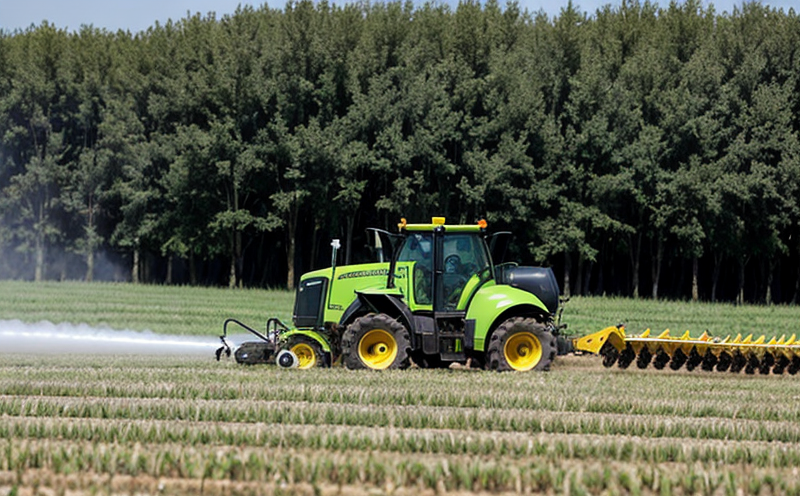Kresoxim-Methyl Residue Testing in Crops
Kresoxim-methyl is a nitrilase-inhibiting herbicide that controls broadleaf weeds and grasses. It is widely used due to its selectivity for broadleaf plants over monocotyledonous crops like wheat, maize, and barley. Residue testing ensures the safety of food products derived from treated crops by identifying allowable limits set by regulatory authorities such as the European Food Safety Authority (EFSA) and the US Environmental Protection Agency (EPA).
Our laboratory specializes in providing accurate and reliable Kresoxim-methyl residue analysis for various agricultural commodities. This testing is crucial to ensure compliance with international standards, thereby protecting both consumers and producers.
The process involves several critical steps including the collection of samples from fields where the herbicide has been applied. Samples are typically taken at different stages post-treatment to capture any potential residues accurately. Upon receipt in our laboratory, samples undergo rigorous preparation procedures involving thorough rinsing and drying before extraction using appropriate solvents.
Instrumentation used includes high-performance liquid chromatography (HPLC) coupled with mass spectrometry (MS). This combination allows for precise quantification of Kresoxim-methyl residues at very low concentrations. The method ensures that no residue exceeds the maximum acceptable levels prescribed by relevant regulatory bodies.
For accurate results, it is essential to follow strict protocols regarding sample handling and analysis. These guidelines are outlined in international standards such as ISO 17025 for quality management systems in testing laboratories and IUPAC recommendations on analytical methods.
The importance of this service cannot be overstated. Not only does it contribute towards maintaining public health by ensuring no harmful chemical residues remain in our food supply, but it also supports sustainable agricultural practices by facilitating informed decision-making processes regarding pesticide use.
Applied Standards
| Standard | Description |
|---|---|
| ISO 17025 | International standard specifying general requirements for the competence of testing and calibration laboratories. |
| ASTM E1698-14 | This American Society for Testing and Materials (ASTM) guideline provides procedures for sampling, preparation, and analysis of plant tissues containing herbicides. |
| EN 352-7 | A European Norm specifying the determination of active substances in plant protection products by HPLC-Mass Spectrometry. |
Quality and Reliability Assurance
- We employ highly trained analysts who are certified to perform Kresoxim-methyl residue testing.
- All our equipment is regularly calibrated against international standards to ensure precision and accuracy in measurements.
- A robust quality control program is implemented to verify the reliability of test results through repeat analyses whenever necessary.
Customer Impact and Satisfaction
- Our clients benefit from timely delivery of accurate results, enabling them to make informed decisions promptly.
- We offer comprehensive reporting tailored to individual client needs, providing detailed insights into the presence or absence of Kresoxim-methyl residues.
- By ensuring compliance with international standards, we help our customers avoid costly legal issues and maintain their reputation for producing safe agricultural products.





